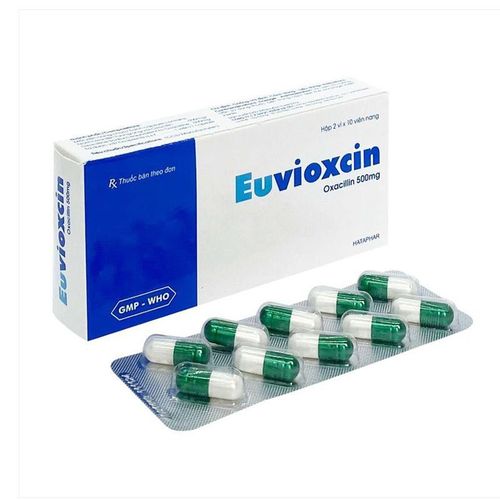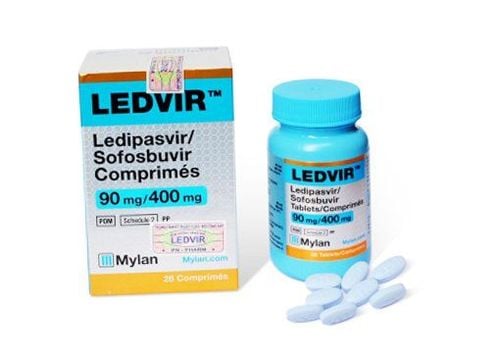This is an automatically translated article.
Bephardin is an antiviral drug whose main ingredient is Lamivudine. In addition to the monotherapy for hepatitis B, Bephardin is also used in combination with Zidovudine to treat HIV.
1. What is Bephardin?
What is Bephardin? Bephardin belongs to the group of drugs that treat parasites, infections, fungi and viruses, with the main ingredient being Lamivudine 100mg. Lamivudin is an antiviral agent that is highly active against the hepatitis B virus.
Bephardin is available in capsule form and is indicated for the treatment of chronic hepatitis B or progressive hepatitis associated with hepatitis B. with increased ALT, cirrhosis, decompensated liver disease, necrotizing hepatitis, compromised immune system, liver transplant surgery.
In addition, Bephardin is also combined with Zidovudin to treat HIV in both adults and children 3 months of age and older.
2. How to take and dose of Bepardin
Bephardin is taken orally, patients need to take the drug with water and can be taken on an empty stomach or full. Dosage depends on the purpose of treatment as follows:
Hepatitis B: Adults take a dose of 100mg/time/day (equivalent to 1 tablet/time/day). Children over 12 years old use a dose of 3mg/kg body weight/time/day, the maximum dose should not exceed 100mg/day. Combination of Bephardin with Zidovudin to treat HIV: Adults take 150mg/time and take 2 times/day, while Zidovudin use 600mg/day and divide into 2-3 times to drink during the day. Children use dose 4mg/kg body weight/time and take 2 times/day. The maximum dose of Bephardin should not exceed 300mg / day and the combined dose of Zidovudine is in the range of 360 - 720mg / day, Zidovudine is divided into several times a day. Note: The dose of Bephardin for patients with renal failure with creatinine clearance less than 50 ml/min should be adjusted lower. No dose adjustment is required for patients with hepatic impairment, except for patients with concomitant renal impairment.
3. Bephardin side effects
Bephardin often causes some unwanted side effects such as fatigue, headache, discomfort in the body but especially in the abdomen, diarrhea, nausea, vomiting, respiratory infections.
If you see any strange symptoms after taking the drug, the patient should immediately report it to a doctor or go to a medical facility for a timely health check.
4. Some notes when using the drug Bephardin
Do not use Bephardin in people with hypersensitivity to the components of the drug. People with kidney failure, pregnant or lactating women need to be careful when using Bephardin, especially the 150mg monotherapy dose. If the patient becomes pregnant while taking the drug, the patient should stop taking the drug immediately. If there are signs of pancreatitis or worsening of the disease, discontinuation of Bephardin should be considered. During the treatment of Bephardin, patients should have their liver function checked periodically. In addition, it is necessary to monitor the patient's response to the drug, if it is not effective or is not tolerated, the patient may have to stop taking the drug. In the case of discontinuation of the drug, the patient continues to monitor liver function to detect if hepatitis has recurred. The use of Bephardin is antiviral, especially the B virus that causes hepatitis. Bephardin is used in the treatment of chronic hepatitis B or progressive disease with other lesions. Besides, the drug is also used with other drugs in HIV patients. To ensure the effectiveness of treatment and avoid unwanted side effects, patients need to strictly follow the instructions of the doctor, professional pharmacist.
Follow Vinmec International General Hospital website to get more health, nutrition and beauty information to protect the health of yourself and your loved ones in your family.
Please dial HOTLINE for more information or register for an appointment HERE. Download MyVinmec app to make appointments faster and to manage your bookings easily.













